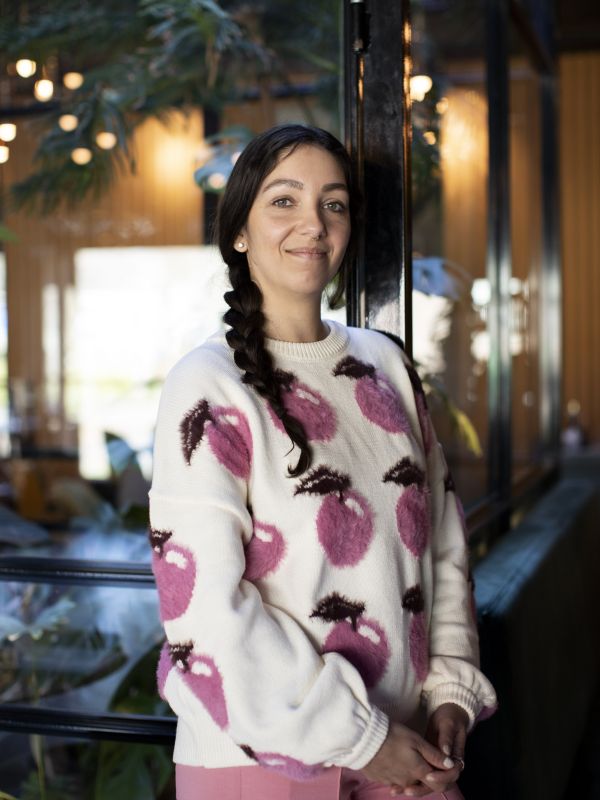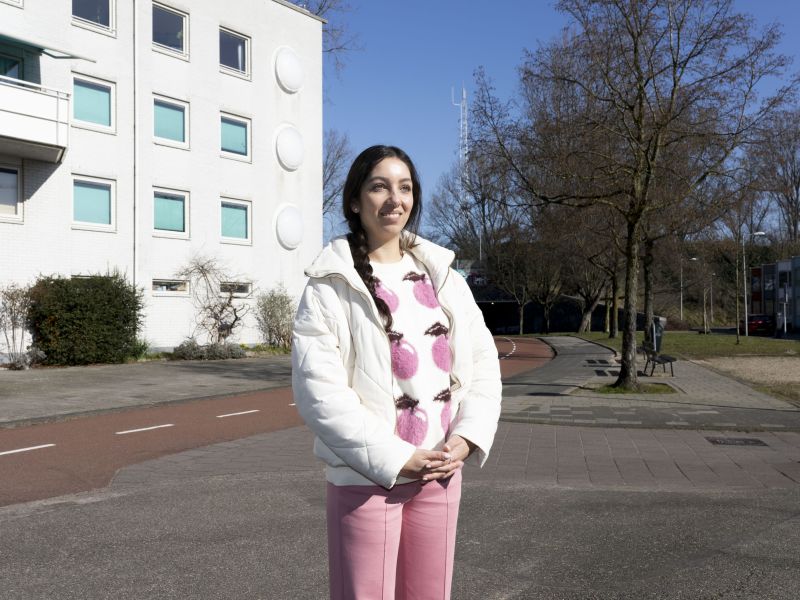Vote for a Woman: from smart voting tip to systemic change
The personal need to be represented, both for herself and for all women, turned Devika Partiman into founding Vote for a Woman: with her organization, she has been working tirelessly for more inclusive and representative politics in the Netherlands since 2017. In a world where democracy does not always mean inclusive representation, Devika Partiman is an example in how to make your voice heard despite inequality and resistance.
Leading up to the Just Peace Festival, we are highlighting the themes of the festival. You are the perfect person to talk about the theme of democracy!
Can you tell us a bit more about your organization Stem op een Vrouw (Vote for a Woman)?
Stem op een Vrouw began as a campaign to vote smartly for women. Only about 30 percent of Dutch politicians are women, and there is very little diversity among those women. We have since grown into a foundation that works broadly for gender equality in politics - from the water board to the House of Representatives, from municipalities to the European Parliament. Among other things, Vote for a Woman offers mentoring programs, lobbies for better leave arrangements and fights against online hate and intimidation towards female politicians.
Why do you do this work?
When all is said and done, you see that classic women's rights, such as abortion, are not safe in the hands of the majority of men. The inequality of women and girls is so normalized. What if men were mistreated and abused so much? Then more would be done about it. For example, look at Sunny Bergman's recent documentary Blue Balls and Other Rape Myths about sexual abuse. So many things are still seriously wrong.
The biggest challenge is to get political parties to really move. Many administrators express support but take no action.

95% in politics are college-educated, while college-educated is only 36% of society.
What challenges do you face in achieving gender equality?
The biggest challenge is really getting political parties to move. Many administrators express support but do not take action. I get around the laconic “Yes, of course everyone should be safe in politics and representation is important” and then make no commitments by finding ways to force change through public pressure and strategic communication. For example, we successfully contributed to gender mainstreaming in the Amsterdam policy, which means that from now on every policy choice is considered in terms of its impact on women and girls. And more and more political parties are putting more women on their electoral lists.
How do you make politics accessible and democracy inclusive for everyone?
There are still quite a few barriers that prevent many women and other citizens from being politically active. For women specifically, you can think of traditional gender patterns that thwart their ambition, the fact that we unconsciously accept leadership by (white) men more readily, but also practical thresholds such as that meeting times often do not fit women's needs and that leave arrangements for politicians are poorly regulated. But there are also barriers that transcend gender and affect more people. Consider prejudices about education level: there is a strong idea that you have to have an academic background to participate in politics. Some 95% of our politicians are academically educated, while academics make up only 36% of society.
Second, people of color unfortunately often experience discrimination - including in politics - and have fewer role models who came before them. There are large migrant communities in the Netherlands, such as Somali, Eritrean, Moluccan, Indonesian, Vietnamese and Chinese Dutch, that you hardly see back. In addition, the experiences of role models, such as Sylvana Simons, show how much you can be judged on the color of your skin. This has a discouraging effect. You also see people with a migration background being pitted against each other: “We already have one in the top 10!” We must continue to question the white norm and work toward a politics where everyone feels welcome.
How do you experience the current political shifts to the right?
The growing influence of the extreme right and conservative forces in the Netherlands worries me. Especially because of the undermining of women's rights, the rule of law and democratic institutions. You see in right-wing parties that women are deliberately put forward prominently, to give the appearance of being inclusive. But racist women also exist. Homophobic women also exist. As a result, you might think: it won't help if more women become politically active. But of that, research clearly shows that that is not true. The mistake people sometimes make is that they confuse representation of a group with the actions of an individual. Representation is about increasing the chances of being heard: the more women there are in politics, the more likely the interests of women and girls will be on the agenda and heard. Focusing on the individual is distracting from the core; we need to focus on the group!

We need to be more creative; old means no longer work.
How do you keep going despite everything that is happening in the world?
I see the building blocks of democracy crumbling. Petitions with 40,000 signatures, Council of State opinions, official investigations, debate requests and demonstrations are being ignored.Traditional avenues of democratic influence and debate are being undermined. We must be more creative, old means no longer work. Civil society must adapt to a political arena that increasingly seems to have deaf ears.
From smart voting campaign to systemic change, know how to inspire us with Stem op een Vrouw (Vote for a Woman). What can you do yourself?
Become a member of a political party, you can do so from the age of 14! This will give you insight into how things work behind the scenes and allow you to exert influence. Once you are a member, you receive newsletters on programs, see how the list is made, and you can go to local meetings where you get to know other members and politicians. Change must come from the outside, but also from within.
Devika Partiman's mission remains clear: until women have an equal voice in decision-making, her work remains essential. In this regard, voting for women is not an end in itself, but a powerful tool for structural change
Watch/listen/read tip for readers: Podcast Damn Honey!





